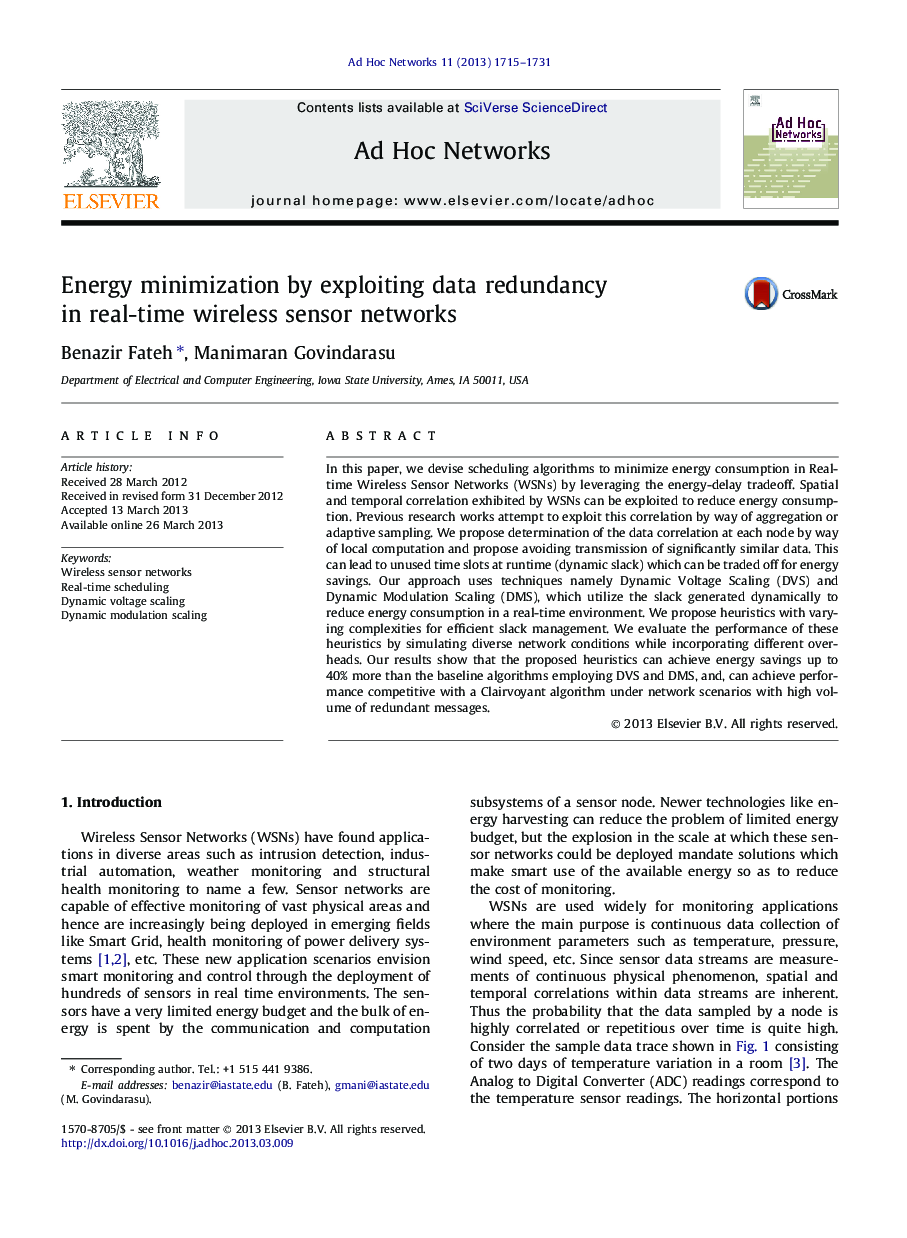| Article ID | Journal | Published Year | Pages | File Type |
|---|---|---|---|---|
| 448142 | Ad Hoc Networks | 2013 | 17 Pages |
In this paper, we devise scheduling algorithms to minimize energy consumption in Real-time Wireless Sensor Networks (WSNs) by leveraging the energy-delay tradeoff. Spatial and temporal correlation exhibited by WSNs can be exploited to reduce energy consumption. Previous research works attempt to exploit this correlation by way of aggregation or adaptive sampling. We propose determination of the data correlation at each node by way of local computation and propose avoiding transmission of significantly similar data. This can lead to unused time slots at runtime (dynamic slack) which can be traded off for energy savings. Our approach uses techniques namely Dynamic Voltage Scaling (DVS) and Dynamic Modulation Scaling (DMS), which utilize the slack generated dynamically to reduce energy consumption in a real-time environment. We propose heuristics with varying complexities for efficient slack management. We evaluate the performance of these heuristics by simulating diverse network conditions while incorporating different overheads. Our results show that the proposed heuristics can achieve energy savings up to 40% more than the baseline algorithms employing DVS and DMS, and, can achieve performance competitive with a Clairvoyant algorithm under network scenarios with high volume of redundant messages.
